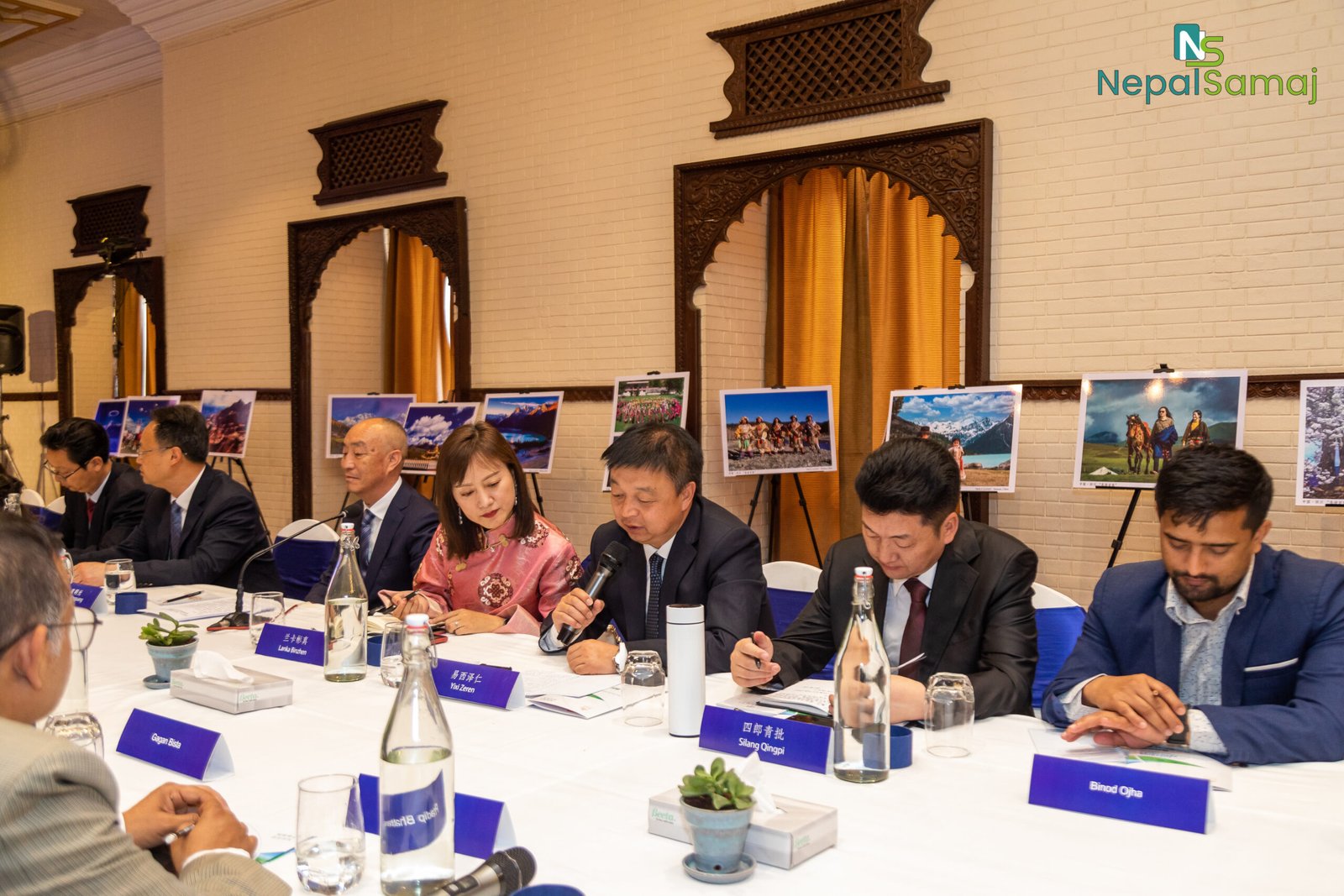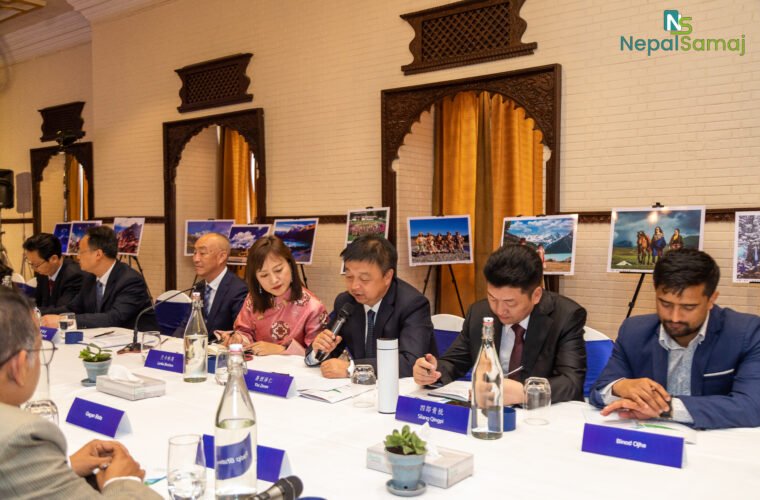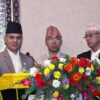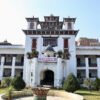Kathmandu, April 28 : A two-sided discussion about business expansion has been held between Ganzi Prefecture of China and representatives of the private sector of Nepal. On Sunday, a program organized by China’s Ganzi Tibetan Prefecture and co-organized by Sino Nepal Media Society and Nepal National Pavilion in China discussed the culture, tourism, environment and potential of the Himalayan region of the two countries.
Dr. Ramkumar Phuyal, a member of the National Planning Commission, said in the program that Nepal should move forward by assimilating the knowledge and experience gained from the friendly countries in order to achieve social and economic transformation.

Emphasizing on vocational education, transformation is possible, he said, using the knowledge and experience gained from neighboring countries. He said, “The main plan of the current government is to make the country prosperous, to achieve prosperity through socio-economic transformation.” The first thing that transforms is the ability of the Nepali people, including the ability to study education and professional education. Therefore, at that level, we can move forward by assimilating the knowledge gained from our close friendly countries and the available and ongoing experience.
He said that the government will build human resources as capital and that capital has moved forward according to the concept of ‘right person and right place’. He also said that according to the concept, the government’s policy is to create more jobs, promote entrepreneurship and expand relations with friendly countries as much as possible.
He said that Nepal is very close to China. He expressed his belief that since about 1400 kilometers of Nepal’s territory is connected with China, it will be easy to cooperate in natural and Ayurvedic products.

Mentioning that geographical, religious and natural aspects are the basis for strengthening the relationship between Nepal and China, he said, ‘Work can be done by establishing good relations between the local governments of Nepal and the counties and prefectures of China.’
In the event, Suman Pandey, President of Nepal Ayurvedic Medicine Producers Association, said that Nepalese tea and coffee have good export potential as the taste of tea and coffee is liked by Tibetans.
According to him, there is a possibility of exporting Ayurvedic medicines made from Yarsagumba, Jitamsi and other herbs produced here. Acting Director of National Tea and Coffee Development Board Dr. Deepak Khanal said that 27,000 metric tons of tea is produced in Nepal annually, so the Chinese market was taken for export because there were many problems in exporting to India.

He asked China to facilitate this. Member of Ganzi Prefecture People’s Government Standing Committee and Secretary General Yuan Mingguang said that cooperation with Nepal can be increased to realize the natural beauty, cultural heritage and characteristics of the sacred Ganzi Plateau and cooperation with mountain tourism, tea culture, ethnic crafts and other areas. He said, “Similar natural background and cultural heritage can help to find areas of cooperation, which is also our original objective.”
In the program, the members of the Chinese team shed light on Ganzi’s geographical, social, environmental conditions and development potential in the road network, agricultural production, technology and economic sectors.
Stating that they want to see Nepal grow and flourish in terms of development and prosperity, they informed that the window is open for investment and cultural exchange.

By 2026, Ganzi has set a goal to increase the number of green food, organic agricultural products and agricultural agricultural production organizations in the province on a geographical basis. Lochawa (Translator) Punya Prasad Parajuli, who has been studying and teaching in the field of Buddhism in Nepal, said in the program that the relationship between Nepal and China started from the time of Manjushree.
He said that the relationship between the two countries was connected by the Bodhisattva Manjushree. He said that if Chinese scriptures are translated into Nepali language and Nepali scriptures into Chinese, religious tourism will be promoted.
Agricultural expert Tekprasad Luintel discussed that there is a good possibility to export junar and oranges from Nepal to Tibet. Professor Dr. Balmukund Regmi and others said that cooperation between the two countries is indispensable in Nepal’s tea, coffee, grass, Ayurvedic medicine production, quality maintenance, conservation, and market promotion.

Ganzi Prefecture covers an area of 150,000 km. It is twice the size of Sri Lanka and slightly larger than Nepal. The climate is predominantly plateau-mountainous, with an average annual temperature of 7.8 °C. Like Sri Lanka and Nepal, Ganzi is home to many ethnic groups, and most residents are religious.
Ganzi is a ‘corridor’ for ethnic integration, a major center for Sino-Tibetan trade and a center for the tea horse trade. Especially like the ‘transfer hub’ Pokhara, it has unique lake and mountain views and even snow peaks can be seen in hot summer. It also attracts countless mountain climbing enthusiasts.
In Pokhara Buddhism and Hinduism, the different sects of Tibetan Buddhism in Ganzi are harmonious and harmonious and have their ancient temples. A common natural background and a common cultural heritage can help everyone find areas of better communication and cooperation, which is also the original purpose. Ganzi is China’s largest grassland livestock breeding base and the largest barley production base and edible mushroom export base in Sichuan Province.





